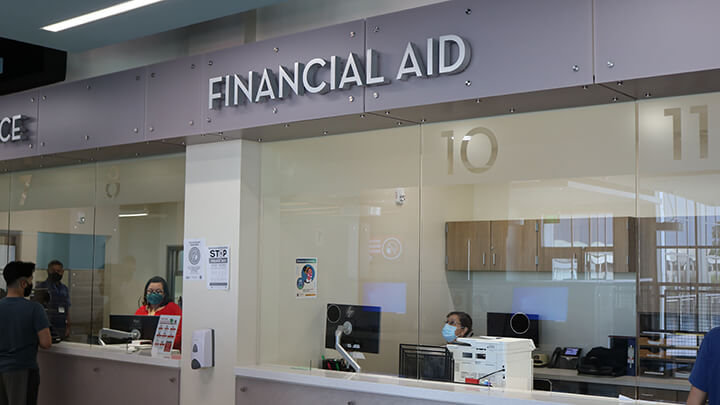
The year 2024 marks a pivotal moment in the realm of higher education, as reported by a Wall Street Journal article, revealing a dramatic 57% decrease in college financial aid applications. This significant downturn underscores a crucial challenge for students and families aiming to pursue higher education. At Synergy College Funding Consultants, we are committed to dissecting this development, offering in-depth analysis and practical solutions to navigate through these uncertain times. Our goal is steadfast: to empower families to achieve the best educational outcomes for their children at the most reasonable cost, while also protecting their financial future.
The Startling Decline: A Closer Look
The recent downturn in college financial aid applications is more than just a statistic; it’s a reflection of significant systemic challenges facing prospective college students and their families. This year, less than half the usual number of high school students have applied for college financial aid, a direct consequence of the bumpy rollout of the government’s revamped Free Application for Federal Student Aid (FAFSA) process. Intended to streamline applications and expand eligibility for federal Pell Grants, the new FAFSA form instead encountered delays and technical glitches, leading to a substantial drop in applications. By late January, only about 700,000 seniors had completed their applications, a stark decrease from the approximately 1.5 million applicants at the same time last year.
This decline is not merely a temporary setback but stands as one of the most significant shocks to college admissions in decades. The delays in the FAFSA rollout mean that colleges are unable to receive application data on time, disrupting the traditional timeline for financial aid packages and forcing students to make decisions about their education without complete information. The situation is exacerbated by the fact that the Government Accountability Office has launched an investigation into this year’s FAFSA rollout, indicating the severity of the issue.
The Ripple Effect on Students and Families
The implications of this decline extend far beyond the immediate frustrations of navigating a new and flawed application system. Financial aid packages, crucial for many families in making college affordable, may not be distributed until after the traditional deadline for student deposits. This uncertainty places students and their families in a precarious position, having to make one of the most significant financial decisions of their lives without clarity on the support they can expect to receive.
Colleges and universities, recognizing the dilemma faced by applicants, have begun to adjust their deadlines accordingly. Institutions like Kalamazoo College have extended their commitment deadlines, offering students additional time to make informed decisions. However, this extension is a double-edged sword, providing relief but also prolonging the period of uncertainty for families.
The technical issues with the FAFSA form, from glitches preventing completion to delays caused by necessary updates to account for inflation, have added layers of complexity and stress to the application process. Parents and students find themselves dedicating significant time and effort, sometimes requiring time off work, to navigate these hurdles. The challenges are particularly acute for students with parents who do not have a Social Security number, highlighting the systemic barriers that persist in accessing higher education.
Colleges Are Extending Deadlines
In response to the upheaval caused by the FAFSA rollout, colleges across the country are reevaluating their admissions timelines. Traditionally, May 1 has served as the national deadline for students to commit to a college and put down a deposit. However, this year has seen a shift, with at least a dozen schools, including Columbia College Chicago and Oregon State University, extending their deposit deadlines to June 1. This move, supported by nine college and financial aid associations, underscores the need for flexibility in the face of unprecedented challenges.
The University of Illinois Chicago, for example, expects to notify students of their aid packages in early May, a significant delay from the previous year. The university has not only pushed back its commitment deadline to June 1 but also remains open to further extensions if necessary. This adaptability is crucial in ensuring that students are not forced to make hasty decisions without understanding the full scope of their financial aid options.
These extended deadlines represent a collective acknowledgment of the difficulties posed by this year’s FAFSA rollout. By allowing more time for students to receive and consider their financial aid packages, colleges are taking a necessary step to mitigate the impact of application delays. However, this is only a part of the solution. The broader challenge lies in addressing the systemic issues that led to this situation, ensuring that future students do not face similar obstacles in accessing college financial aid.
The Ripple Effect on Students and Families
This decline has profound implications for accessibility to higher education, potentially widening the gap between different socioeconomic groups. The decrease in applications could lead to a reduction in diversity and inclusivity on college campuses, affecting the educational experience for all students.
Strategic Responses to the Decline
Broadening the Horizon: Alternative Funding Sources
In response to the dwindling number of financial aid applications, it’s imperative to explore alternative funding avenues. This includes Scholarship America programs, niche scholarships tailored to unique skills or backgrounds, and other lesser-known financial resources that can provide substantial support.
Enhancing Financial Aid Eligibility
A critical aspect of navigating the decline is understanding how to maximize financial aid eligibility. This involves strategic planning around the FAFSA application deadline, optimizing for Pell Grant eligibility, and effectively utilizing work-study opportunities and Parent Plus Loans.
Synergy’s Expert Guidance
At Synergy College Funding Consultants, we offer personalized consulting services to help families craft a tailored college funding strategy. Our certified counselors are equipped to guide you through the complexities of the financial aid process, ensuring you make informed decisions that align with your educational and financial goals.
Empowering Your Educational Journey
We invite you to take the first step towards a brighter educational future by scheduling a free consultation with our team. Discover how our expertise can transform your approach to college funding and open doors to new opportunities.
Conclusion
The 57% decline in college financial aid applications in 2024 is a wake-up call to the complexities of making higher education accessible and affordable. As families navigate these turbulent waters, the support and guidance provided by organizations like Synergy College Funding Consultants become more vital than ever. Through personalized advice and strategic planning, we can help families understand their options, maximize their aid eligibility, and make informed decisions about their educational future.
In these uncertain times, the importance of flexibility, both on the part of institutions and applicants, cannot be overstated. As we continue to monitor the evolving situation, our commitment to assisting families in achieving their educational goals remains unwavering. We invite you to reach out and schedule a free consultation with our team, ensuring that you have the expert guidance needed to navigate the complexities of college funding.
Beyond the Numbers: A Forward-Looking Approach
As we confront the challenges presented by the 57% fall in financial aid applications, it’s clear that a proactive, informed approach is essential. Synergy College Funding Consultants remains committed to empowering families with the knowledge and tools necessary to navigate these turbulent times successfully.
Frequently Asked Questions (FAQ)
What is the FAFSA application deadline for 2024?
The FAFSA application deadline for the 2024-2025 academic year is June 30, 2024. However, students are encouraged to apply as early as possible since many states and colleges have earlier deadlines for their financial aid programs.
How can I determine my Pell Grant eligibility?
Pell Grant eligibility is based on financial need, as determined by the information provided in your FAFSA. Factors include your Expected Family Contribution (EFC), cost of attendance, enrollment status, and whether you’re attending a full academic year or less.
Are there any niche scholarships that I should consider?
Yes, numerous niche scholarships cater to specific interests, talents, backgrounds, and fields of study. Websites like Scholarship America and other scholarship search engines can help you find these opportunities.
How does the Parent Plus Loan work?
The Parent Plus Loan is a federal loan that parents of dependent undergraduate students can use to help pay for college or career school. The loan amount can cover the cost of attendance minus any other financial aid received.
Can work-study programs cover a significant portion of college expenses?
Work-study programs can provide a valuable source of funding for college expenses. While they may not cover all costs, they offer students the opportunity to earn money for their education while gaining valuable work experience.
Legal Disclaimer
This article is for informational purposes only and is not intended as financial advice. The financial landscape is subject to change, and individual circumstances vary. We recommend consulting with a professional advisor to discuss your specific situation. Investing in education involves risks, including the potential loss of principal. Synergy College Funding Consultants does not guarantee the accuracy or completeness of the information provided herein.

